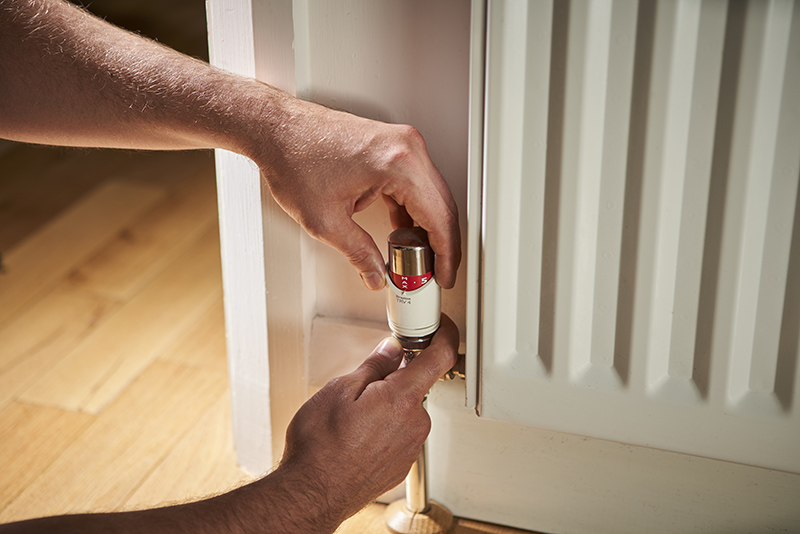
Three years on from its introduction, there is still some confusion around Boiler Plus and how it impacts the day-to-day work of heating engineers. With more changes to Boiler Plus likely coming in the future, Remi Volpe, Managing Director at Drayton, addresses some of the common misconceptions and looks ahead to what may be coming next.
Here in the UK, we remain very much committed to meeting the Net Zero targets set out for 2050. So far, a number of steps have already been introduced to help the nation on this journey, such as the Future Homes Standard, which requires all new-build houses from 2025 to utilise low-carbon heat sources like electric and hybrid heat pumps, rather than traditional gas boilers. Legislation such as Boiler Plus was introduced as a starting point to help improve the efficiency of existing properties that rely on gas boilers, whilst alternative heat sources are being agreed upon.
Current requirements
Since the introduction of Boiler Plus in April 2018, each of the 1.67million gas combi boilers sold and installed need to have an efficiency rating of at least 92% and be fitted with time and temperature controls as standard practice. In addition to this mandatory requirement, Boiler Plus also states that at least one of the following four additional energy efficiency measures must also be installed.
Flue Gas Heat Recovery unit (FGHR)
This additional fitting works by repurposing the hot flue gases leaving a combi boiler. By taking these gases, which are often around 50º to 70º, the reclaimed heat is used to heat the incoming water, helping to save energy.
Load compensation
Many modern electronic heating thermostats currently use on/off load compensation. This method of heating adjusts the average water temperature within the heating system by cycling the boiler On and Off periodically to ensure the correct system return temperature. In this setup, the boiler output temperature is fixed.
Ideally, heating engineers should also look for OpenTherm modulating heating controls when installing an OpenTherm boiler. In these systems the boiler is on constantly during the on period, rather than cycling, with the output temperature being adjusted according to the system requirements.
Weather compensation
Weather compensation works by monitoring the outside temperature and adjusting the heat schedule accordingly to ensure the home reaches the desired temperature without overshooting, helping to reduce wasted energy.
Smart control with automation and optimisation
Found in smart controls such as Wiser, automation and optimisation combine technology like load and weather compensation to understand the thermal properties of a building, again adjusting when the boiler should fire to help save energy.
For example, Wiser’s Eco Mode combines optimum stop and weather compensation to adapt heating schedules according to changing weather conditions, while its Comfort Mode uses optimum start to learn how long a home takes to heat up, adjusting schedules to reach the desired temperature at the ‘on’ time.
What’s next?
Boiler Plus is currently under review and a number of additional points are expected to be introduced to improve the legislation. Currently, Boiler Plus relates only to combi boilers, and whilst they account for 78% of the market, the remaining 22% presents a large opportunity to further improve efficiencies. It is expected that the legislation will be extended to cover other types of boiler going forward.
It is also predicted that the updated requirements will be extended to include new additional measures, such as hydraulic balancing; a decision that was avoided first time around due to the skills gap, with just 18% of installers at the time undertaking this as standard practice.
Hydraulic balancing is an essential part of any installation process. A balanced system will supply an equal flow of hot water to each radiator throughout the house to maintain comfort and ensure the system works efficiently. These flow rates can be set via the valve where thermostatic radiator valves (TRVs) are in place, and the Drayton TRV4 balancing key makes this possible. However, it’s clear that more education will be needed to explain these benefits to homeowners, as during initial consultation on Boiler Plus, 57% of respondents said that customers were not aware of the benefits of TRVs or how to effectively use them.
Thermostatic radiator valves (TRVs) were also overlooked by Boiler Plus back in 2018. However, with the expected transposition of the Energy Performance of Buildings Directive (EPBD), they are likely to become mandatory with boiler installations and during the construction of new builds.
As always, installers are the key to unlocking consumer awareness. The success of implementing new and updated policies like Boiler Plus requires new understanding from customers – and installers are best placed to explain the benefits when retrofitting boilers. Many households will be looking for advice on how to reduce their energy bills and will rely on installers for guidance and information, so there is a great opportunity for knowledgeable engineers to advise consumers on policies like Boiler Plus and how they can help.













